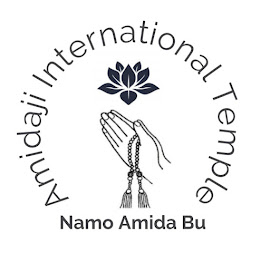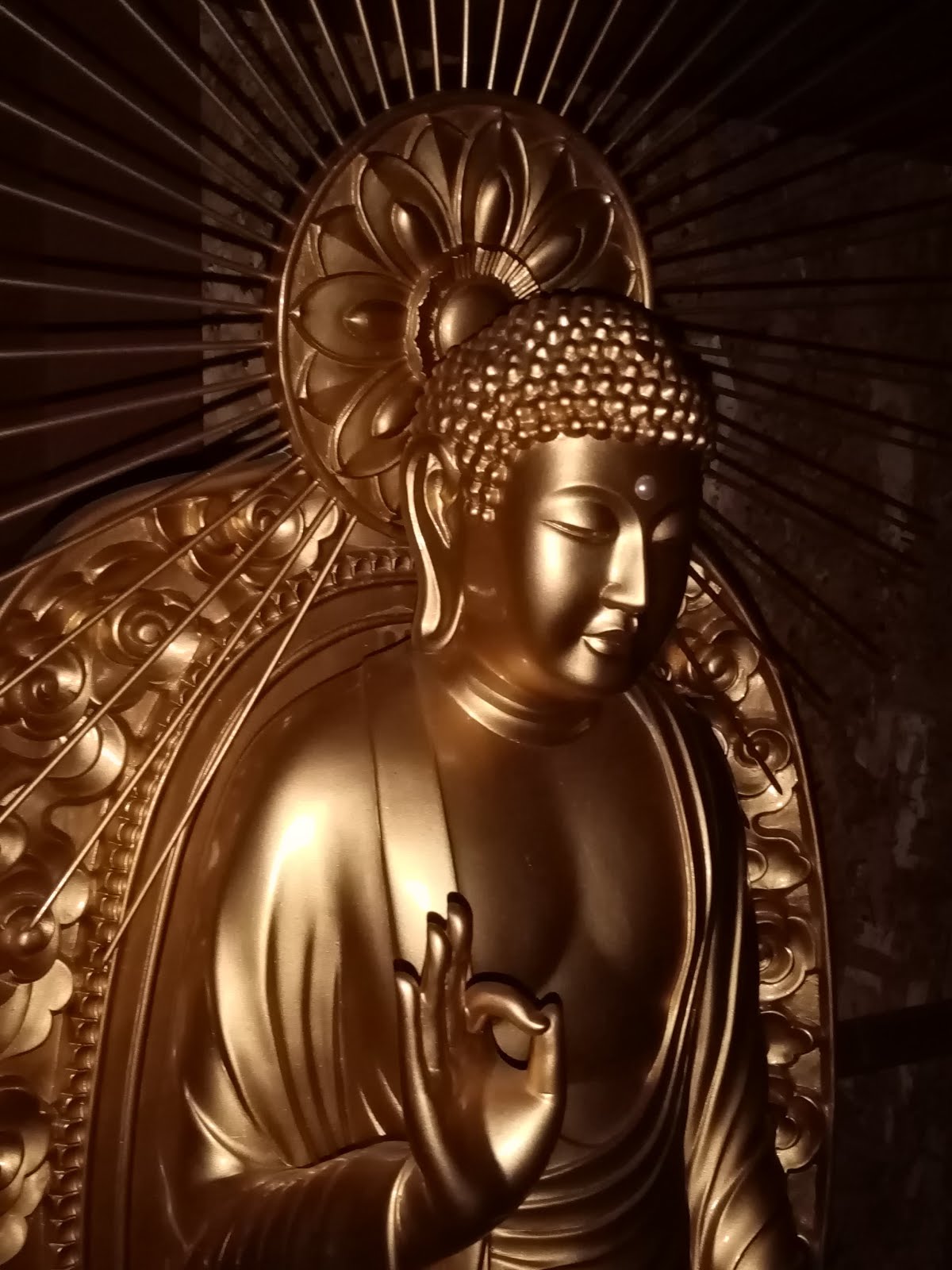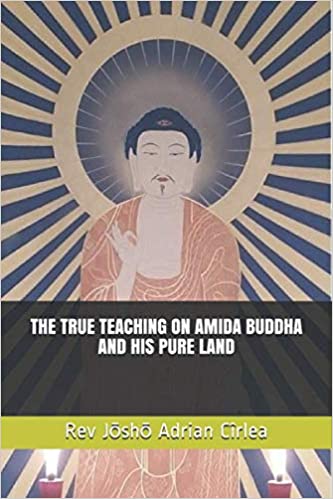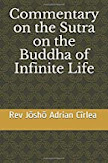Monday, March 23, 2020
AMIDA DHARMA - Fascicle 9. The five conditions for birth in the Pure Land
Tuesday, November 24, 2015
A Standard of Shinshu Faith (complete free online edition)
A Standard of Shinshu Faith by Dr Ryosetsu Fujiwara was first published in 1963 by the Buddhist Churches of America and it contains a digest of the Anjin Rondai - Topics for Discussions on Faith, which is the doctrinal standard of the Nishi Hongwanji branch of Jodo Shinshu school. As the author himself said in the first part of the book:
Wednesday, February 21, 2018
Elements of genuine faith: 4) The twofold profound conviction (nishu jinshin)
Wednesday, June 26, 2019
Eight guidelines to protect and transmit the true faith in Amida Buddha
Saturday, May 16, 2015
If Amida’s Primal Vow is true…
Thursday, April 27, 2017
Don't do many things, just focus on the recquirements of the Primal Vow
Monday, February 1, 2021
The six paramitas (perfections) in the Jodo Shinshu context
Shaku Shingan: “You may have heard of how at O-higan in North America, it is often taught that we "must" attain the six perfections (paramitas).”
Tuesday, February 20, 2018
Elements of genuine faith: 5)To accept the Primal Vow of Amida Buddha without any doubt and be sure of your birth in the Pure Land
That Amida's land is easy to reach,
And calls the sentient being who doubts the Pure Land path
A person lacking eyes, or lacking ears".[5]
Wednesday, December 19, 2018
The Nembutsu of faith - the genuine saying of the Name of Amida Buddha
Thursday, September 15, 2016
The merit transference from Amida Buddha to those who entrust to Him
Thursday, November 4, 2021
The three vows of salvation
Generally speaking, Buddhist
practices taught by Shakyamuni Buddha can be classified into two groups:
1. meditative practices
2.
non-meditative practices
Meditative practices include various types of meditation and
visualization that we can find in all schools of Buddhism from Theravada to
Mahayana and Esoteric Vajrayana[1].
Non-meditative practices include chanting sutras, observing precepts, abstaining from evil or doing various good acts, etc. These non-meditative practices are said to generate merit or positive karmic energy that help the practitioner attain higher rebirths or spiritual states. They can also be transferred or directed by the practitioner toward various goals, including his future Enlightenment.
Tuesday, November 17, 2020
Transcript of Amidaji Sangha meeting on Zoom (November 8th 2020)
 |
| Rev Josho Adrian Cirlea on zoom in Amidado (Hall of Amida) of Amidaji temple |
One of the things that I'm finding amazing is the Other Power of Amida. And how the more you become a person of faith, you realize that faith in Amida is not from you. It can't be from you. And it comes directly from Amida and I see so much proof of that, in my faith. When it's like everything else in my life is in upheaval and change and flux. The only thing that remains unchanging is my faith in Amida Buddha. And it just I still find that amazing.
Sunday, January 10, 2010
Faith is simple, nothing special
But shinjin is different. It doesn’t necessarily imply a special state of mind, or special thing to be felt or experienced. It is simply to entrust in Amida Buddha. I rely on Amida for my attainment of Buddhahood in His Pure Land. That is all.
Friday, February 24, 2012
All Buddhas praise Amida's Name (short explanation of the 17th Vow of Amida Buddha)
Monday, May 14, 2018
Information on priest ordination in Jodo Shinshu (Nishi Hongwanji branch) and my opinion on this matter
Wednesday, January 3, 2024
There is NO true spirit of compassion in the celebration of Christmas, Easter or other holidays of monotheistic religions
“The point I am making is that neither Amida Buddha, nor Shakyamuni Buddha, nor any other buddha (awakened being) cares whether you celebrate Christmas or not. Being an American raised in a Protestant Christian family, I personally celebrate Christmas, and treasure its spirit of forgiveness, charity, and compassion.”
The true spirit of Compassion is to be found in the Buddha Dharma because true Compassion is always related with true Wisdom which belongs only to Buddhas. From Infinite Wisdom arises Infinite Compassion, that is, from a real understanding of ultimate Buddha nature, the emptiness of samsaric phenomena and of the suffering of all beings drowned in delusion, Infinite Compassion arises.
Sunday, August 5, 2012
Sangha as spiritual friendship
“Venerable One, I thought a great deal and reached the conclusion that spiritual friendship is half of the spiritual life!”
Friday, October 29, 2021
How to help friends and family create a connection with Amida Buddha
Question: “Sometimes, one may be concerned about friends and family, because they have chosen different religious ways, or decided to believe in nothing at all. Of course, they also think that their path is the correct one and even if this can change during a lifetime, they might never have access to Buddhism. If we try to bring them on the path, they might block this from the beginning. It is just too early for them from the karmic point of view. How can we work discreetly on them, so that they develop interest in Buddhism, if not in this life, at least in one of the coming lives? What is your advice?”
Sunday, December 19, 2021
How to help friends and family create a connection with Amida Buddha
Question: “Sometimes, one may be concerned about friends and family, because they have chosen different religious ways, or decided to believe in nothing at all. Of course, they also think that their path is the correct one and even if this can change during a lifetime, they might never have access to Buddhism. If we try to bring them on the path, they might block this from the beginning. It is just too early for them from the karmic point of view. How can we work discreetly on them, so that they develop interest in Buddhism, if not in this life, at least in one of the coming lives? What is your advice?”
Thursday, October 21, 2021
Again on the idea that faith in Amida comes from Amida - very simple explanations
There are many who get stuck at the idea of shinjin (faith) coming from Amida Buddha, or being Amida's gift. However, this is a very simple thing, and you should understand it in a simple way, so that it may not become an obstacle.
First of all, shinjin or simple faith in Amida is like when you do not know how to fix your car and you trust John who is a mechanic to fix it for you. In our case, you cannot attain Buddhahood by yourself and you trust Amida Buddha to help you attain it by taking you to His Pure Land.Your trust in John arises because you heard he is a very skilled mechanic and you saw him doing other repairs. So, in truth, John is the one who makes you trust him.
Also, let’s say you have a best friend. To have faith in your best friend is, in fact, answering to his love and to the fact that he is constantly there for you so, in fact, your trust in him is his gift. You trust him because of him.







































